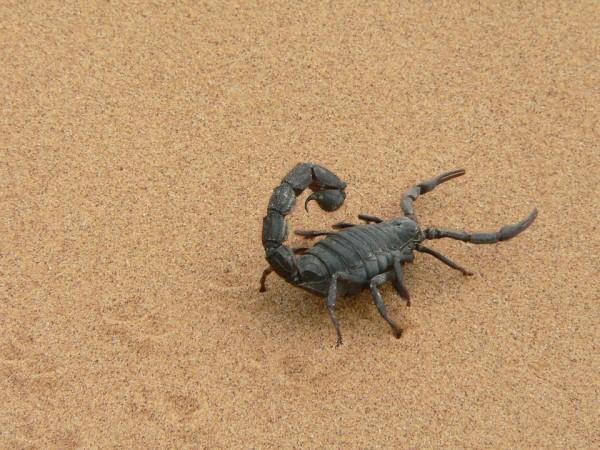
Scientists have devised a robot to extract scorpion venom for research on cancer and other medicines. Currently, harvesters carry out the process manually which is pretty dangerous.
Also Read: David and Victoria Beckham: Top 7 interesting things to know about the couple
The robot has been designed by Mouad Mkamel along with a team of researchers from Ben M'sik Hassan II University, Morocco.
According to Mouad, his device makes the milking process safe and quick, Wired reported.
"The extraction of scorpion venom is a very difficult task and usually takes at least two experimenters," Mouad said in a statement.
"There are numerous risks including potentially deadly scorpion stings and electric shocks from the stimulators used to extract the venom," he added.
Due to the above reasons, scientists made the entire procedure safer with the help of robotics. A movable lightweight robot – VES-4 – has also been made by the scientists, which can be used in a lab as well as on the field. The robot is specially designed to carry out the venom collecting process safely without harming the scorpion by puncturing its venom gland or damaging the abdomen.
"VES-4 could be used by one person using a remote control to safely recover scorpion venom remotely," Mouad said.
According to a 2013 research, scorpion venom can act as a painkiller and even help in developing new drugs that can benefit humans. The venom could help researchers in carrying out a study regarding cancer treatments in the future.
"Scorpion venom can illuminate into a so-called 'tumour paint' that uses fluorescent molecules attached to natural toxins. These attach to cancers, effectively lighting them up, and can someday pinpoint the exact location and extent of cancerous growths," a report by Science World Report said.
The poison may also help in combating malaria. In 2013, a researcher from University of Maryland had succeeded in modifying a fungus loaded with a substance from scorpion venom. This substance helped in fighting malaria parasites detected in mosquitoes.

















